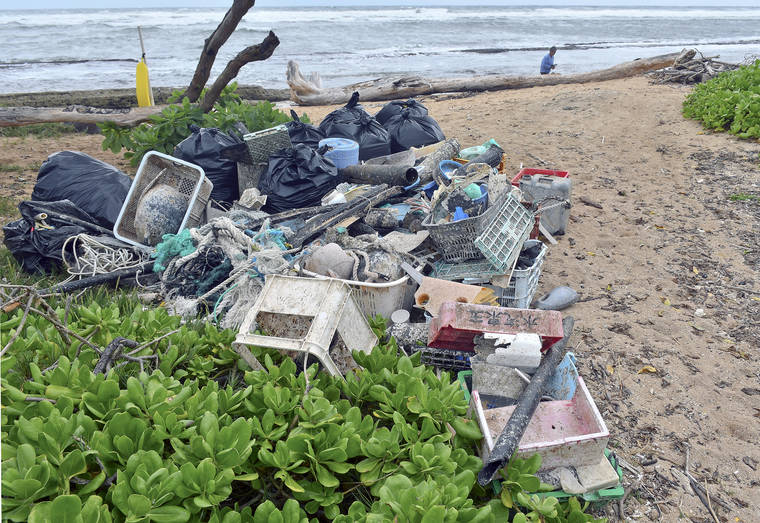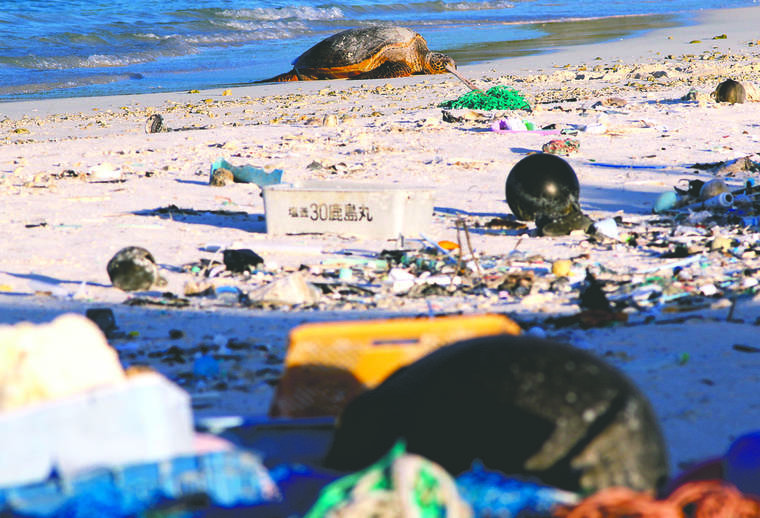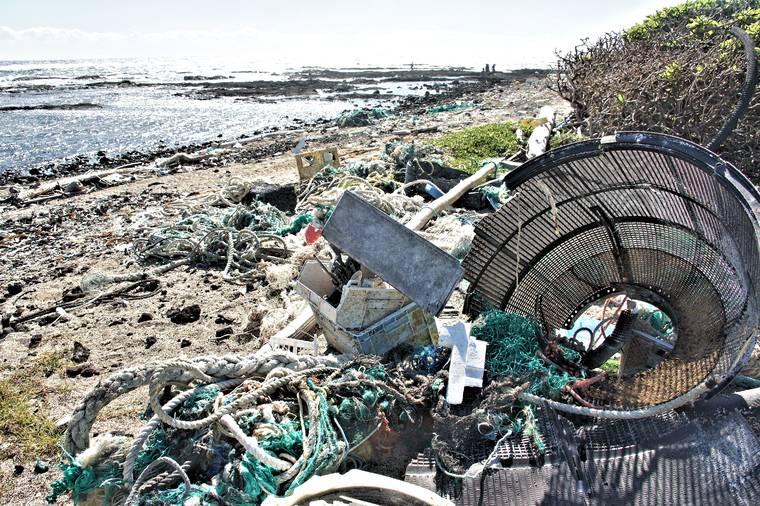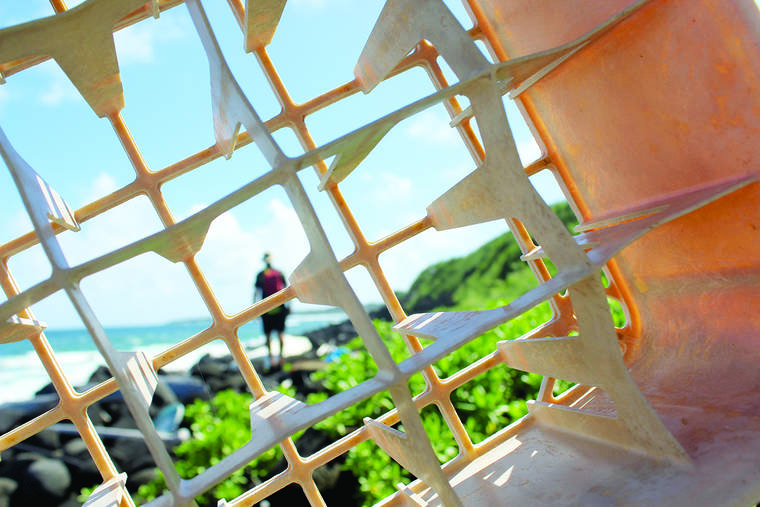LIHU‘E — Hawai‘i now has until the end of May to evaluate the impact of plastic pollution on the state’s water bodies, including any threats to wildlife and people.
The order results from a February lawsuit in which several Hawai‘i environmental organizations demanded the U.S. Environmental Protection Agency address plastic pollution under the Clean Water Act.
This week, those organizations — The Center for Biological Diversity, Sustainable Coastlines Hawai‘i and Surfrider Foundation — got their answer when EPA notified state officials that it was withdrawing its 2018 approval of the “list of impaired waters.”
Every state is required to submit a list of impaired and threatened waters to EPA for approval every two years, and those lists identify polluted waterways as well as the pollutants present, when known.
The list is required under the Clean Water Act, and EPA now is asking the state to evaluate plastic as pollution in Hawai‘i’s waterways.
Hawai‘i has until May 29 to submit the evaluation.
“This is great news for Hawai‘i, which has been hit hard by plastic pollution,” said Maxx Phillips, Center for Biological Diversity Hawai‘i director.
“The ocean plastic-pollution crisis is a public-health crisis. Plastic permeates our waters, chokes wildlife and carries toxins onto our beaches, through our food web, and eventually onto our tables. It’s time for Hawai‘i to finally address this threat,” he said.
Plastic pollution in Hawai‘i ranges from microplastics that contaminate coastal waters and harm marine life to massive piles of plastic waste along Kamilo Beach, nicknamed “Plastic Beach.”
Studies indicate that 17 water bodies around the Hawaiian Islands are impaired by plastic pollution.
“Our plastic-pollution activists in Hawai‘i and around the nation are pleased to see this decision,” said Angela Howe, Surfrider Foundation’s legal director. “This is a critical first step to address marine plastic
pollution through our nation’s water-quality protection laws and to help prevent future degradation of beaches, coral and marine life.”
The Clean Water Act requires the EPA to designate as “impaired” all water bodies that fail to meet state water-quality standards. Once a water body is designated as impaired, officials must take action to reduce the pollution.
“We’re excited to see progress that will recognize plastic as a detrimental pollutant that infects our waters, coastlines and lives,” said Rafael Bergstrom, executive director of Sustainable Coastlines Hawai‘i.
“This decision gives us hope that our institutions are beginning to take seriously the responsibility of protecting our most precious resources. With collective effort from community, government and business, we can turn the tide on plastic pollution,” he said.
Plastic pollution poses a serious threat to Hawai‘i’s water quality and vulnerable marine ecosystems. Microplastics, or plastics that have broken into tiny pieces, are emerging as a major threat to marine wildlife and water quality. Microplastics can absorb environmental toxins and get eaten by fish and other marine life, and can eventually be consumed by humans.
Plastic pollution has been accumulating in oceans for decades, and is expected to outweigh all the fish in the sea by 2050, according to some studies. Those studies show much of that plastic comes from Asian countries that process American plastic waste. But surveys have found a significant percentage of the plastics contaminating Hawai‘i’s waters originate within the state.
•••
Jessica Else, editor-in-chief, can be reached at 245-0457 or jelse@thegardenisland.com.






the lawsuits need to be directed at China and India…that is pretty much where all of the world’s pollution comes from;
you can get a pretty good idea, from simply reading the markings on the larger chunks, none of which are printed in English…
too bad there is not some sort of mandated bar code or embedded system in the larger items, to scan and trace the origin and purchaser of the item….?? or maybe some sort of “plastic DNA” too see where all of this stuff comes from !!…..
but once again, good luck getting China or India to sign up for that or any other plans to heal the planet…heck they are still eating snakes and bats…
just saying….
Actually plastic is largely an American invention, and definitely an American industry. Frontline on PBS has a very insightful program on it this week.
Additionally we all have a responsibility to help in every small way we can. The plastxic straw has been the poster child for this, but on this island especially, it should be the pickup truck. What makes anyone think that cup or bag is going to stay in an open truck bed as you drive down the road? Then when it hits the ground, unless someone else picks it up, it will eventually end up in the ocean, either as the item itself, or as it is broken into a thousand pieces and washed down a stream.